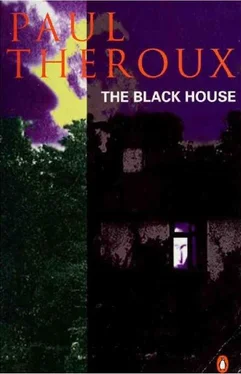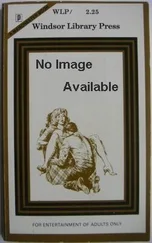Paul Theroux - The Black House
Здесь есть возможность читать онлайн «Paul Theroux - The Black House» весь текст электронной книги совершенно бесплатно (целиком полную версию без сокращений). В некоторых случаях можно слушать аудио, скачать через торрент в формате fb2 и присутствует краткое содержание. Год выпуска: 1996, Издательство: Penguin Books, Жанр: Современная проза, на английском языке. Описание произведения, (предисловие) а так же отзывы посетителей доступны на портале библиотеки ЛибКат.
- Название:The Black House
- Автор:
- Издательство:Penguin Books
- Жанр:
- Год:1996
- ISBN:нет данных
- Рейтинг книги:4 / 5. Голосов: 1
-
Избранное:Добавить в избранное
- Отзывы:
-
Ваша оценка:
- 80
- 1
- 2
- 3
- 4
- 5
The Black House: краткое содержание, описание и аннотация
Предлагаем к чтению аннотацию, описание, краткое содержание или предисловие (зависит от того, что написал сам автор книги «The Black House»). Если вы не нашли необходимую информацию о книге — напишите в комментариях, мы постараемся отыскать её.
The Black House — читать онлайн бесплатно полную книгу (весь текст) целиком
Ниже представлен текст книги, разбитый по страницам. Система сохранения места последней прочитанной страницы, позволяет с удобством читать онлайн бесплатно книгу «The Black House», без необходимости каждый раз заново искать на чём Вы остановились. Поставьте закладку, и сможете в любой момент перейти на страницу, на которой закончили чтение.
Интервал:
Закладка:
“I don’t sleep well,” said Munday. “And lately I’ve felt pain, a burning sensation. I get short of breath. It seems to come with worry.”
“Most ailments do,” said the doctor. “But I’ll book you for an electrocardiogram just the same.”
Munday was going to speak of how Emma confirmed what he had feared in the black house, in that inhospitable village. But the doctor’s dismissive manner put him off; at that distance, too, the black house and his fears seemed unreal—only a nearness of the dark comers, the liquid shadows, the rub of that unexampled smell at his nose alarmed him. Not near it, he could doubt it. In London it all seemed absurd, and this consultation seemed unnecessary, like a pain struggled with for days that disappears in a miraculous cure in the doctor’s waiting room. His fears were hollow words, neutral and without urgency, simply a memory of terror grown quaint in a distance that allowed him to forget. It was the way he sometimes felt about Africa. Up close, as a resident in the Yellow Fever Camp, it excited so many particular fears and made his mind nimble but now he had trouble seeing it except as a formless dazzle of the exotic. The rest was forgotten; it wasn’t lost: it was all, he knew, buried in his mind.
“What exactly do you worry about?”
“My work.”
“What is your work?”
“At the moment—I’m being frank—nothing. An anthropologist studies people. I have none.”
“Then you have nothing to worry about.”
“You don’t know,” said Munday. His memory, his fear was of being hunted down, thrown out of the black house by a gulping phantom.
“Do you get depressed?”
It was that woman’s question. Munday could not honestly say no. He said nothing.
“A lot of doctors would fill you up with pills. I’m against that,” said the doctor. “Get a lot of fresh air, take exercise. Moderate drinking’s all right. Do you smoke?”
“A cigar occasionally.”
“You’re lucky you can afford them. But watch what you eat. Diet’s very important. My receptionist will give you a diet card. You can put your shirt on.”
Buttoning his shirt, Munday said, “Father Dowle thought it was serious enough to send me home.”
“I’m not saying it’s not serious. You’ve got to take care of yourself. But you’re better off here in any case, aren’t you?”
“Here?”
“England,” said the doctor.
A black house in a remote village, Munday wanted to say, that’s the only England I know now. But he said: “Father Dowle specifically said—”
“God,” said the doctor. He walked over to the door and opened it. “I remember once when we were doing a urinalysis. There was a girl in the class—forget her name, not very pretty. Dowle slipped gold filings in her specimen when she wasn’t looking, then showed her how to do a gold test on it. She thought he had taken leave of his senses, of course, but when it came out positive she was beside herself. ‘Gold in my urine!’ she said, and Dowle leaned over and said in a heavy brogue, ‘They’re laughing, but I’m thinking we should sink a shaft, my dear.’ ”
“That’s ten guineas gone west,” said Alec in the Wheatsheaf. He had been waiting at the end of a long bench by the wall, and seeing Munday enter he rose and greeted him loudly in Swahili, the way he always had on the verandah of the Mountains of the Moon Hotel on a Saturday morning. That was Munday’s day in Fort Portal and he always spent it with Alec in continuous drinking, watching the road and the progress of the sun, until it was time to drive back to the camp, a long bumpy trip his drunkenness shortened by blurring. At the end of those afternoons, watching the fierce blood-red sunset, crimson chased with yellowing pink on the mountains, Alec used to say, “They’re killing each other again in Bwamba.”
10
Alec had managed a tea estate, and Munday in town for the week’s supplies looked forward to the older man’s company while Emma visited her friends and used the British Council Library. It was some relief from what after a year had become monotony in the village. Alec had sat, often jeering humorously with his cronies, and sometimes with the African girl who lived with him, whose picture appeared on the yellow tea wrapper—in the picture she was holding a similar packet of tea. Munday had never seen Alec in England; today he was alone in the crowded pub, looking burdened by his heavy suit and rather older: a sunburn had always masked the boozy floridness of his face and without it the patches of bright veins only emphasized his pallor. But his voice was the old familiar trumpet and his shouted Swahili caused several people nearby to turn and listen, and Alec, noticing their curiosity, had continued. Only when Munday was seated beside him did Alec lower his voice and resume in English.
“You reminded me,” Munday had said, and he told his story of having spoken Swahili to the porter at Waterloo. What had made him feel ridiculous in Emma’s eyes impressed Alec, and Alec said, “So you’re still the bwana mkubwa. That happened to me once in Marseilles. I opened my mouth to speak French and out came 'Kuja hapaV Baffled those frogs, I can tell you.”
“My porter was insulted,” said Munday.
“Served him right,” said Alec. “The striking classes always have it their own way, what? Here, let me get you a drink.” Alec pushed his way to the bar and returned with a pint. “A handle, right? I never forget a thing like that.” He raised his glass and said, “Confusion to your enemies, death to mine! Alfred, it’s like old times.” Then Munday said he had just come from Harley Street, and Alec had made the remark about the ten guineas.
“He told me I was perfectly all right,” said Munday.
“Maybe you are!”
“Maybe so,” said Munday. “But I certainly don’t feel it.”
“You are looking a bit unbuttoned,” said Alec. “I’m not surprised. I haven’t felt at all well since I stepped off that plane. Not at all.”
“Who’s running the estate now?”
“My branch manager,” said Alec, and he snorted at the contemptuous joke. “I hope it goes bust. They had no right nationalizing me. I was employing four hundred pickers—I’ve heard they’re down to a hundred and fifty now. They haven’t a bloody clue. And here I am.” Alec looked disgustedly around the pub.
Munday didn’t encourage him in his anger. He had seen Alec aggrieved before, and aggrieved Alec turned abusive, inviting witnesses to his pain. Munday respected the vigor of Alec’s settler opinions, though he always steered him away from the talk about Africans, which strained Munday’s loyalties. He wished to keep them separate, the Africans in the village, Alec and his cronies in Fort Portal. What he admired in Alec was the knowledge he had—a subtle expression of his attachment to the country—of the local flora, the names of wild flowers and trees, the types of grass; Alec made distinctions about landscape few Africans made, and he remembered Alec drunk one night outside a bar he called “The Gluepot,” stooping to the sidewalk and plucking a flower and holding the frail shaking blossom in his large fingers to identify it. Munday had once considered writing an anthropological study of people like Alec, the tribalism of the post-war settlers, but he felt he might have lost them as friends if he did that. Then his Saturdays would have been empty.
“The last time I saw you wearing a suit was at the Omukama’s funeral,” said Munday.
“Remember that?” said Alec. “That was a bash! All those women screeching, those sort of round horns they were blowing. The High Commissioner was there —God, he hated me. I got pissed as a newt afterward with Jack at The Gluepot.” Alec shook his head and smiled.
Читать дальшеИнтервал:
Закладка:
Похожие книги на «The Black House»
Представляем Вашему вниманию похожие книги на «The Black House» списком для выбора. Мы отобрали схожую по названию и смыслу литературу в надежде предоставить читателям больше вариантов отыскать новые, интересные, ещё непрочитанные произведения.
Обсуждение, отзывы о книге «The Black House» и просто собственные мнения читателей. Оставьте ваши комментарии, напишите, что Вы думаете о произведении, его смысле или главных героях. Укажите что конкретно понравилось, а что нет, и почему Вы так считаете.












